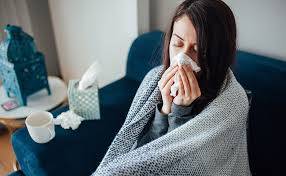How to Prevent Pneumonia
Introduction:
Pneumonia, an infection that inflames the air sacs in one or both lungs, can range from mild to severe and is a leading cause of illness and death worldwide. While anyone can get pneumonia, certain groups, such as infants, young children, the elderly, and those with weakened immune systems, are particularly vulnerable. However, there are proactive steps individuals can take to reduce their risk of contracting pneumonia. In this comprehensive guide, we will delve into various strategies and preventive measures to safeguard against this respiratory ailment.
Understanding Pneumonia:
Before diving into preventive measures, it's crucial to understand pneumonia's causes, symptoms, and risk factors. Pneumonia can be caused by bacteria, viruses, fungi, or other microorganisms. The most common types are bacterial and viral pneumonia, with the latter often stemming from influenza viruses or the respiratory syncytial virus (RSV). Symptoms typically include cough, fever, chills, difficulty breathing, chest pain, fatigue, and in severe cases, bluish lips or nails due to a lack of oxygen.
Certain risk factors increase susceptibility to pneumonia, such as:
1. Age: Infants and older adults have weaker immune systems, making them more susceptible.
2. Chronic Diseases: Conditions like asthma, chronic obstructive pulmonary disease (COPD), diabetes, or heart disease can compromise lung function and immunity.
3. Smoking: Smoking damages the lungs and weakens the body's defenses against respiratory infections.
4. Weakened Immune System: Conditions like HIV/AIDS, cancer, or organ transplantation can impair the immune response.
5. Exposure to Pollutants: Air pollution, including indoor pollutants like smoke and chemicals, can irritate the lungs and increase vulnerability.
6. Malnutrition: Poor nutrition weakens the immune system, making individuals more susceptible to infections like pneumonia.
Now that we have a foundational understanding of pneumonia, let's explore proactive measures to prevent its occurrence.
1. Vaccination:
Vaccination is one of the most effective ways to prevent certain types of pneumonia. Two vaccines are commonly recommended:
a. Pneumococcal Vaccine: Protects against Streptococcus pneumoniae bacteria, a common cause of bacterial pneumonia. There are two types of pneumococcal vaccines: pneumococcal conjugate vaccine (PCV13) and pneumococcal polysaccharide vaccine (PPSV23). PCV13 is recommended for children and adults at increased risk, while PPSV23 is recommended for adults aged 65 years and older and those with certain health conditions.
b. Influenza Vaccine: Since influenza can lead to viral pneumonia, getting an annual flu shot is crucial, especially for high-risk individuals. The vaccine helps prevent influenza infection and its complications, including pneumonia.
2. Practice Good Hygiene:
Simple hygiene practices can go a long way in preventing respiratory infections like pneumonia:
a. Wash Hands Frequently: Regular handwashing with soap and water for at least 20 seconds helps remove germs that can cause pneumonia. If soap and water are not available, use an alcohol-based hand sanitizer.
b. Cover Your Mouth and Nose: When coughing or sneezing, cover your mouth and nose with a tissue or your elbow to prevent the spread of respiratory droplets containing germs.
c. Avoid Touching Your Face: Refrain from touching your eyes, nose, and mouth with unwashed hands, as this can introduce germs into your body.
d. Clean and Disinfect: Regularly clean and disinfect frequently touched surfaces and objects, such as doorknobs, countertops, and electronic devices, to reduce the spread of germs.
3. Maintain a Healthy Lifestyle:
A healthy lifestyle can bolster the immune system and reduce the risk of pneumonia:
a. Eat a Balanced Diet: Consume a diet rich in fruits, vegetables, whole grains, and lean proteins to provide essential nutrients that support immune function.
b. Exercise Regularly: Engage in regular physical activity to strengthen the immune system and promote overall health. Aim for at least 150 minutes of moderate-intensity exercise per week.
c. Get Adequate Sleep: Prioritize sleep and aim for 7-9 hours of quality sleep per night. Sufficient rest helps the body recover and supports immune function.
d. Don't Smoke: If you smoke, quit smoking, and avoid exposure to secondhand smoke. Smoking damages the lungs and increases the risk of respiratory infections like pneumonia.
4. Practice Respiratory Etiquette:
Adopting proper respiratory etiquette can prevent the spread of respiratory infections:
a. Wear a Mask: During periods of respiratory illness outbreaks, such as flu season or during a pandemic, wearing a mask can help reduce the transmission of respiratory droplets.
b. Stay Home When Sick: If you develop symptoms of respiratory illness, such as cough, fever, or difficulty breathing, stay home from work, school, or public gatherings to prevent spreading the infection to others.
c. Avoid Close Contact: Minimize close contact with individuals who are sick, especially if they have symptoms of respiratory infection.
5. Stay Up-to-Date with Medical Care:
Regular medical check-ups and prompt treatment of underlying health conditions can reduce the risk of pneumonia:
a. Manage Chronic Conditions: If you have chronic medical conditions like asthma, diabetes, or heart disease, work with your healthcare provider to manage them effectively and reduce their impact on lung health.
b. Follow Treatment Plans: If you have a respiratory condition like asthma or COPD, follow your treatment plan diligently to control symptoms and reduce the risk of exacerbations that can lead to pneumonia.
c. Seek Prompt Medical Attention: If you develop symptoms of pneumonia, such as cough, fever, or difficulty breathing, seek medical attention promptly for diagnosis and treatment. Early intervention can prevent complications and promote faster recovery.
Conclusion:
Preventing pneumonia requires a multifaceted approach that includes vaccination, good hygiene practices, maintaining a healthy lifestyle, practicing respiratory etiquette, and staying up-to-date with medical care. By incorporating these preventive measures into daily life, individuals can reduce their risk of contracting pneumonia and protect their respiratory health. Remember, prevention is always better than cure, and investing in preventive measures can lead to a healthier and more resilient future.




No comments yet
Be the first to share your thoughts!